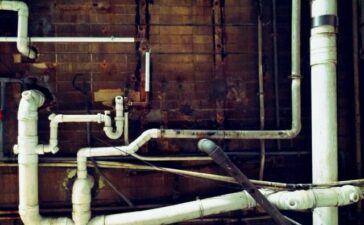A question that many homeowners are confronted with is whether it’s best to leave their air conditioner running all day. An air conditioner can typically cool your room for 15 to 20 minutes before shutting off by itself.
However, if it’s extremely hot outside—more than 80 degrees—your air conditioner might run all day. It might never turn off in some situations. According to HVAC professionals, it’s perfectly fine for your AC to run continuously. Moreover, some air conditioning units are made to operate at maximum capacity.
Nevertheless, it is advisable to keep turning your AC unit off periodically to ensure there is no systemic failure and minimize electricity bills. More so, ensure your contact Pearland air conditioning repair for regular inspections.
How Long Should Your Air Conditioner Run Every Day?
An average air conditioner should run for 15 to 20 minutes on a warm, muggy day. The unit will automatically shut off after 20 minutes if the indoor temperature has not yet reached the required level. Afterward, your air conditioner will turn off until the temperature exceeds your set point before starting up again.
Why Might Your Air Conditioner Run All Day?
An AC unit that operates continuously may occasionally be normal. Some energy-efficient systems are built to operate continuously at full capacity. However, if this is unusual for your unit or if you have other concerns, it is important to call for an expert to inspect your unit.
Why Your AC Unit Might Run All-Day
Restricted Airflow
As was previously indicated, it takes your system 15 to 20 minutes to cool your space. If the airflow is restricted, your system will require more power to operate. You thus suffer less cooling and sluggish vent airflow. To avoid such complications, ensure you change filters, and clean your AC vent.
Thermostat’s Settings
Your air conditioner operates continuously if your thermostat is set to “on.” Set the thermostat to “auto” so it only operates until the optimal temperature is attained. Additionally, check that the thermostat settings are exactly right—not too low.
Low Refrigerant
Low refrigerant levels in air conditioners might result in cooling problems and daylong operation of the air conditioner. To identify this issue, you may hear a bubbling hissing sound or feel hot air blow. You can resolve this by contacting a qualified technician for prompt AC repairs.
Your Evaporator or Condenser Coil Is Dirty
The refrigerant in an air conditioner may have trouble absorbing heat from your room if the evaporator coil is dirty. The same holds for a dirty condenser coil, which prevents the refrigerant’s absorbed heat from being released. You might therefore notice warm or less cool air coming through vents. Hire experts to clean it properly and fix the AC unit.
Your AC System Is Too Small for Your Home
Installing the proper-size AC unit for your house is crucial. A small unit will have to work harder to cool a big house. Upgrading to a size-appropriate air conditioner may save you money over time.
Your Windows and Doors Are Not Properly Insulated
If your windows and doors aren’t adequately insulated, hot, humid outside air will slowly seep inside your house and raise the temperature. To keep the house at your preferred temperature, your air conditioner will need to operate continuously and exert more effort.
The Size of Your Ductwork Is Incorrect
Your ductwork won’t be able to manage the airflow from your AC unit if it is too narrow. It’s possible that cool air cannot get to other areas of your house either. Therefore, your electricity costs will skyrocket if your air conditioner runs all day. To prevent this from happening, it is essential to install ductwork in accordance with the capacity of your AC system.
Disadvantages of Running an AC All-Day
Most important AC specifications, including lifespan, power usage, and anticipated humidity levels, are based on an 8-hour use each day for three months. For instance, we are aware that window air conditioners have a lifespan of between 10 and 15 years. However, this is only true if you use an AC for 8 hours per day for three months. Therefore it goes without saying that there would be problems if an AC is run all day.
Some of the disadvantages of running an AC all day include:
Increased Wear and Tear, Which Results in a Shorter Lifespan
The lifespan of AC units will be shortened if we use them excessively. An excellent example is having two identical 10-year-old cars, one of which has 40,000 miles on it and the other of which has 150,000. It goes without saying that greater wear and tear will shorten any AC’s expected lifetime, whether it is a portable, window, mini split, or central air system.
Higher Costs for Cooling
Your electricity cost will increase if you constantly operate the air conditioner throughout the day. If we use your AC for 8 hours daily, your electricity bill will be very low. However, your electricity cost will triple if you run your AC unit all day.
Running Your AC Unit All Day Can Result in Dry Air
The moisture levels may fall below 40% even if you merely use your AC continually for 8 hours. The relative humidity indoors can drop much lower (below 20%) if an AC is run nonstop for days. This will feel like dry air to most individuals, who might find such low humidity levels somewhat unpleasant.
Final Thoughts
During summer, people naturally depend on the air conditioner to regulate the temperatures in their homes. Therefore, during heat waves you should prepare for your air conditioner to run more frequently than usual.
It’s usually safe to leave your air conditioner on all day. The air compressor, the fundamental component of the AC, is a machine that can operate faultlessly around-the-clock. Turning off the A/C in the morning and turning it back on when you return home from work may not be as efficient as running it all day.






